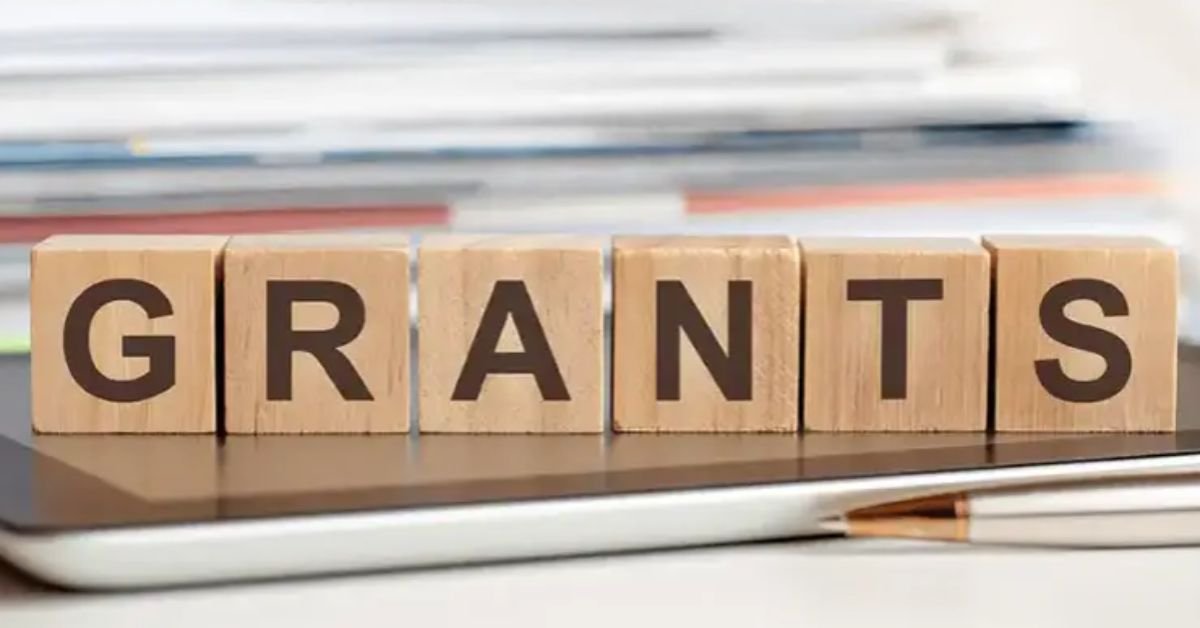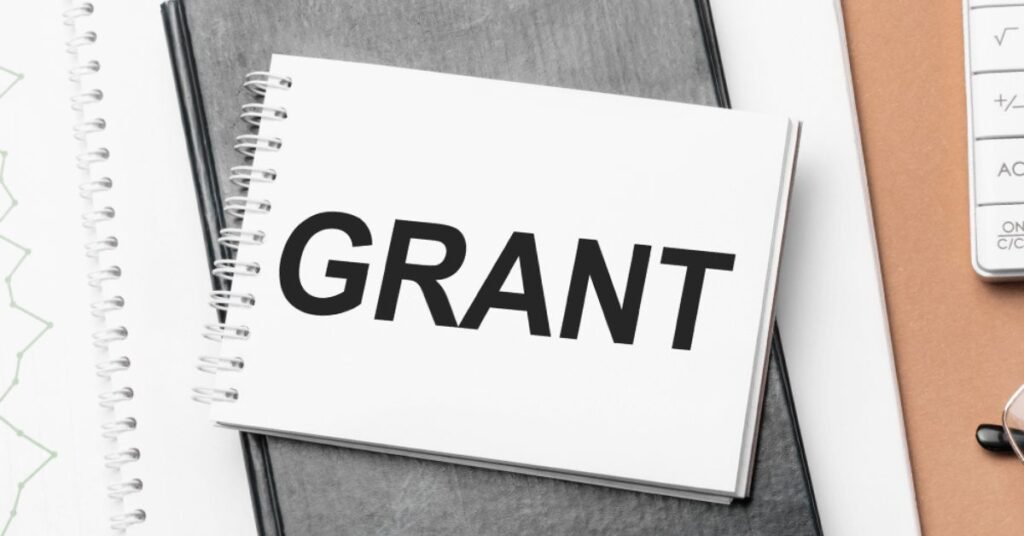Business
A Guide to Government Grants for Individuals and Organizations

Government grants provide a strong financial bridge that allows people and groups to pursue lofty, unattainable objectives. These awards enable people to start new ventures, advance their education, or conduct ground-breaking research. Grants from organizations can help fund critical community initiatives, enhance scientific research, or encourage the preservation of cultural traditions.
This guide helps you understand government grants, giving you what you need to access this funding.
What Is a Government Grant?
A government grant is a cash award made by a federal, state, or local government agency for a good project. It is a transfer payment. Technical or financial support such as a loan or guarantee, interest rate subsidies, direct appropriation, or revenue sharing are not included in grants. The recipient is not expected to repay the money but rather to use the grant funds for the specified purpose, often to benefit a broader good.
In some situations, there may be revenue-sharing agreements with the government, such as when a discovery leads to a profitable patent.
Twenty-six federal agencies manage over 1,000 grant programs yearly to support the arts, sciences, and educational institutions. Government grants help in funding ideas and projects that provide public services while promoting the economy. For example, an economics program could be developed to improve empirical and theoretical economic analysis and methodologies for conducting rigorous studies on economic behavior.
Grants may also fund crucial recovery measures, agricultural projects, and innovative research in various disciplines.
How a Government Grant Works

Government grants are not just awarded; they must be applied for. Obtaining a government grant is a very competitive process. The documentation is extensive; applicants must explain how the cash will assist the local community or the general public. Crafting a convincing proposal is so tricky that many applicants seek expert assistance. Some freelance writers specialize in creating grant proposals.
Federal grants are authorized and appropriated through bills enacted by Congress and signed by the President. Grant authority varies by agency. For example, the Small Business Administration (SBA) may award funding to nonprofit organizations as part of its counseling and training programs.
Exploring Different Grant Programs

Government incentives for innovation are available in a wide range of forms. Below is a summary of some typical grant categories:
Small Business Innovation Research (SBIR) Grants: The U.S. Small Business Administration (SBA) offers grants for small businesses to pursue innovative R&D projects with significant commercial potential.
Small Business Technology Transfer (STTR) Grants: As Similar to SBIR, STTR grants support collaborative R&D efforts between small businesses and research institutions.
Department of Defense (DoD) Grants: The DoD awards grants for R&D projects with potential national defense and security applications.
National Institutes of Health (NIH) Grants: NIH gives numerous grants for biomedical research that could lead to advancements in healthcare and medical treatment.
Department of Energy (DOE) Grants: The DOE offers grants for clean energy research, sustainable technologies, and energy efficiency solutions.
National Science Foundation (NSF) Grants: The NSF supports fundamental scientific research across various disciplines, fostering innovation across the scientific spectrum.
This is a partial list, and numerous other government agencies offer grants for R&D in specific sectors. It is crucial to conduct thorough research to identify grant programs that align with your project’s goals and industry.
Understanding Grant Types
Understanding the different types of government grants is important for identifying opportunities that align with your needs. Here’s a breakdown of common categories:
For Individuals:
- Education Grants: These help finance higher education, specialized training, or skill development. They often target specific groups, such as veterans or students in high-demand fields.
- Research Grants: Support individual research endeavors across various fields, requiring collaboration with universities or research institutions.
- Entrepreneurship Grants: Provide seed funding for innovative business ideas, focusing on sectors like clean technology or small business development.
- Community Development Grants: Fund projects benefiting neighborhoods, including educational initiatives, artistic endeavors, or health programs.
For Organizations:
- Non-Profit Grants: Support non-profits in delivering essential services or addressing social issues like homelessness.
- Research and Development (R&D) Grants: These grants fund R&D activities in sectors like clean energy or healthcare, driving scientific progress.
- Arts and Culture Grants: These grants preserve cultural heritage, promote artistic expression, and make arts programs accessible to diverse communities.
- Infrastructure Development Grants: Fund projects like improving transportation systems or building schools in underserved areas.
Understanding these grant types can help individuals and organizations tap into opportunities to pursue their goals and contribute to societal progress.
Getting a Government Grant

Getting a government grant is a big deal. It’s like getting a prestigious award because it shows you’re making a positive difference in your community or field. And the best part? Government grants don’t come with hidden costs or fees – they’re free money, not loans.
But there’s a catch: since taxpayers fund these grants, there are strict rules about how the money is used. You’ll need to keep detailed records and report back regularly on how you’re spending the funds, including documenting any successes or setbacks along the way.
Still, receiving a government grant can open doors. It puts your project on the map, making it more attractive to other funders, both nonprofit and for-profit. Plus, it might get you noticed by the government agency that gave you the grant, giving you more influence or attention in the future.
Example of a Government Grant

Here’s an example of a government grant in action:
In 2019, the U.S. Embassy’s Public Affairs Section in Moscow announced a grant opportunity for American artists and performers. The grant aimed to bring these talents to Russia for short-term programs covering various fields, such as music, dance, theater, film and television acting, and culinary arts.
Who could apply? Nonprofits, small businesses, and public or private universities were eligible. And the rewards were significant – grantees could receive up to $650,000 to put on performances in Russia.
The ambitious goals were to strengthen “people-to-people ties” between the U.S. and Russia and showcase American values through creativity and innovation. This grant allowed American artists to share their talents internationally while fostering cultural exchange and understanding between the two nations.
Conclusion
This handbook is a valuable resource for people and groups looking to apply for government funding. It empowers readers with the understanding and skills necessary to successfully traverse the grant environment and obtain funding to support their pursuits by examining other grant categories, eligibility requirements, and application tactics, and offering valuable resources.
Business
Choosing the Right Managed Services Program: What to Look For

A managed services program helps businesses by taking care of their IT needs. Instead of managing everything in-house, companies can rely on experts to handle tasks like network management, security, and data storage. This way, businesses can focus on what they do best while ensuring their technology runs smoothly and securely.
In this blog, we will guide you on how to choose the right managed services program for your business.
Assess Service Level Agreements
When choosing a managed services program, it’s key to look at the Service Level Agreement (SLA). An SLA is a contract that outlines what services will be provided. It also explains the expected performance and response times.
Check the details in the SLA carefully. It should clearly state the level of support you can expect. This includes how quickly issues will be fixed and how often services are reviewed.
Make sure the SLA matches your business needs. If your company requires 24/7 support, this should be included. Understanding these terms helps you know what you are paying for and how it impacts your business.
Consider Scalability
When choosing a managed services program, think about scalability. Scalability means the service can grow with your business. As you expand, your IT needs may change, and the right program should adapt easily.
You should check if the program offers flexible options. This includes adding or removing services as required. Good implementation services can help ensure smooth transitions during growth.
A scalable program will save you money over time. You won’t have to pay for extra services you don’t need right now.
Analyze Cost vs. Value
When looking at managed services, it is important to analyze cost versus value. You want to make sure you are paying for services that really help your business. Always compare different providers to find the best fit with competitive pricing.
NetSuite ERP managed services can be a great option. They give you tools and support that can save your company time and money. Look at what each service offers to see if the cost is worth it.
The cheapest option isn’t always the best. Focus on the value you receive, not just the price. A well managed service will help you grow and succeed in the long run.
Ensure Strong Security Measures
Strong security measures are crucial when choosing a managed services program. You need to ensure your data is safe from threats like hackers and malware. Look for services that offer firewalls, antivirus programs, and regular updates.
Check if the provider has good incident response plans. In case of a security breach, a fast response can help limit damage. A reliable service will have clear steps to follow when faced with a threat.
Training is important for all users. Your team should understand security best practices. Regular training sessions can help create a culture of security in your organization.
Unlocking the Full Potential of Your Business with a Managed Services Program
A managed services program can greatly benefit your business. It helps you save time and focus on important tasks. With the right program, you can ensure your IT needs are met.
Choosing the best option is important. Look for services that fit your needs and budget. A well managed service will support your growth.
Always remember to review security measures. Protecting your data is key. Strong security keeps your business safe from threats.
Did this article help you? Browse our blog for more interesting topics.
Business
Tips and Tricks on the Role of SEO for Chiropractors in Growing Your Business

Running a chiropractic business in today’s digital age requires more than just skill and expertise. You need a strong online presence to attract new patients and grow your practice. This is where SEO comes in.
SEO for chiropractors helps your website rank higher in search engine results, making it easier for potential patients to find you. Here are some tips and tricks to help chiropractors leverage SEO to grow their business.
Why SEO Matters for Chiropractors
Before we get into the tips, let’s understand why SEO is essential for your chiropractic practice. When people have health issues or need a chiropractor, they often search online and if your website ranks high in search results, you have a better chance of attracting these potential patients. A chiropractor SEO expert can:
- Increase website traffic
- Improve online visibility
- Build trust
- Increase appointment bookings
Working with a chiropractor SEO agency can ensure you of the best results. They are knowledgeable about the field that you are in. They know how to attract your market by providing them with the information that they are looking for.
Tips and Tricks for Effective Chiropractic SEO
Knowing how to do your SEO properly can help maximize your conversion rates. Here are some thoughts that you need to consider:
Optimize Your Website
Your website is the first point of contact for many potential patients. Make sure it is user-friendly and optimized for search engines. Here are some steps to do that:
Mobile-Friendly Design
Ensure your website works well on mobile devices. Many people use their phones to search for services.
Fast Loading Speed
A slow website can turn visitors away. Use tools like Google PageSpeed Insights to check your site speed and make necessary improvements.
Clear Navigation
Make it easy for visitors to find information. Use clear headings and an intuitive menu structure.
Use Relevant Keywords
Keywords are the terms people type into search engines. Using the right keywords helps search engines understand what your website is about. Here are some ways to incorporate keywords:
Research Keywords
Use tools like Google Keyword Planner or SEMrush to find relevant keywords for your chiropractic practice.
Include Keywords Naturally
Place keywords in your website content, headings, meta descriptions, and alt text for images. But don’t overdo it; make sure the text still reads naturally.
Local Keywords
Include location-specific keywords like “chiropractor in [Your City]” to attract local patients.
Create Quality Content
Content is king when it comes to SEO. High-quality, informative content attracts visitors and keeps them engaged. Here are some content ideas for chiropractors:
Blog Posts
Write about common chiropractic issues, treatments, and tips for maintaining good health.
Patient Testimonials
Share success stories from your patients. This builds trust and credibility.
FAQs
Create a frequently asked questions section to address common queries.
Leverage Local SEO
Local SEO helps you reach potential patients in your area and it is also essential to work with businesses that are specialized in the type of industry you are in. This ensures that they are knowledgeable about your market and your operations. Here are ways to improve your local SEO:
Google My Business
Enhance your Google My Business listing. Include your business name, address, phone number, and hours of operation.
Local Citations
Ensure your business information is consistent across all online directories like Yelp, Healthgrades, and Yellow Pages.
Reviews
Encourage satisfied patients to leave positive reviews on Google and other review sites.
Build Backlinks
Backlinks are links from other websites to yours. They signal to search engines that your site is credible and trustworthy. Here are some strategies for building backlinks:
Guest Blogging
Write guest posts for reputable health blogs or websites. Include a link back to your site. It is also essential to provide information that is accurate to avoid any disputes with your readers later on.
Collaborate with Local Businesses
Partner with local gyms, health stores, or wellness centers. They can link to your website from theirs.
Create Shareable Content
Produce high-quality content that others want to link to, such as infographics, research articles, or how-to guides.
Use Social Media
Chiropractic social media marketing can boost your SEO efforts by driving traffic to your website. Here are some tips for using social media effectively:
Share Content
Post your blog articles, testimonials, and other valuable content on social media platforms like Facebook, Instagram, and Twitter. Make sure that your content is high quality so that it can easily attract new customers.
Engage with Followers
Respond to comments and messages promptly. Engaging with your audience builds trust and encourages sharing.
Promote Reviews
Encourage your followers to leave reviews on your Google My Business page. There are lots of people who read these reviews. Most of them use these reviews as a basis to determine whether the business is good or not.
Monitor and Analyze Your SEO Efforts
Regularly monitoring and analyzing your efforts helps you understand what’s working and what needs improvement. Here are some tools to help you:
Google Analytics
Track website traffic, user behavior, and conversion rates. These can help you determine if certain parts of your SEO efforts are lacking. It can help you improve these factors so that you can get the best results.
Google Search Console
Monitor your site’s search performance, identify issues, and see which keywords bring traffic.
SEO Tools
Use tools like Ahrefs or Moz to analyze your site’s SEO health and find opportunities for improvement. Utilizing the right tools can help you improve the results that your SEO can provide.
Utilizing the Role of SEO for Chiropractors
Improving your chiropractic practice’s online presence with SEO can seem daunting, but it is essential for growth. By optimizing your website, using relevant keywords, creating quality content, leveraging local SEO, building backlinks, using social media, and monitoring your efforts, you can attract more patients and build a successful practice.
Ready to take your chiropractic business to the next level? Start implementing SEO for chiropractors today and watch your practice thrive.
Have this article helped you out? For more topics aside from chiropractor SEO, visit the rest of our blog!
Business
FintechZoom’s Take On GME Stock: What You Need To Know

The world of stock trading is often a whirlwind of activity, with certain stocks capturing the imagination of investors and media alike. GameStop Corp. (GME) is one such stock that has seen significant volatility and interest in recent years. In this article, we delve into FintechZoom’s perspective on GME stock, exploring its historical performance, current status, and future outlook.
TRENDING
Top Firebird Models 2024: Best Picks And Reviews
The Phenomenon Of GameStop (GME)
Historical Background
GameStop, a retail giant in the video game industry, found itself in the spotlight in early 2021. The company’s stock price soared dramatically due to a short squeeze driven by retail investors coordinating through social media platforms like Reddit’s WallStreetBets. This unprecedented event caught the attention of the financial world and highlighted the power of collective action in the stock market.
The Short Squeeze
A short squeeze occurs when a heavily shorted stock experiences a rapid price increase, forcing short sellers to buy shares to cover their positions, which further drives up the price. For GameStop, this phenomenon led to a remarkable surge in its stock price, peaking at over $400 in January 2021 before subsequently falling back down.
FintechZoom’s Analysis Of GME Stock
Current Market Position
As of the latest analysis, FintechZoom provides a comprehensive overview of GameStop’s current market position. The stock, which once saw meteoric rises, has settled into a more stable but still volatile trading pattern. Analysts at FintechZoom highlight several key factors influencing GME’s current performance:
- Company Fundamentals: GameStop’s core business continues to face challenges, including declining physical game sales and the impact of digital distribution. However, the company’s efforts to pivot towards e-commerce and expand its product offerings are noted as potential positive developments.
- Market Sentiment: Investor sentiment around GME remains highly volatile. Social media influence and retail investor enthusiasm continue to play a significant role in the stock’s price fluctuations. FintechZoom emphasizes the importance of monitoring social media trends and investor forums to gauge potential movements in GME stock.
- Financial Health: GameStop’s financial health has been a point of concern. Recent reports indicate mixed results, with the company working to improve its balance sheet and operational efficiency. FintechZoom suggests that potential investors should carefully review the company’s financial statements and strategic initiatives before making investment decisions.
Technical Analysis
FintechZoom’s technical analysis of GME stock reveals important insights into its trading patterns. Key technical indicators include:
- Moving Averages: The stock’s moving averages offer insight into its long-term trends. GME’s short-term and long-term moving averages can help identify potential buy or sell signals.
- Relative Strength Index (RSI): The RSI measures the speed and change of price movements. FintechZoom’s analysis shows whether GME is overbought or oversold, which can be a critical factor in determining the stock’s future performance.
- Support and Resistance Levels: Identifying key support and resistance levels can help investors understand potential price points where the stock might encounter buying or selling pressure.
What Lies Ahead For GME Stock?
Future Prospects
Looking forward, FintechZoom identifies several factors that could influence the future of GME stock:
- Strategic Initiatives: GameStop’s strategic initiatives, including its efforts to enhance its digital presence and diversify its revenue streams, will be crucial in shaping its future performance. Successful execution of these strategies could potentially drive positive stock performance.
- Market Conditions: Broader market conditions, including economic indicators and investor sentiment, will continue to impact GME stock. Monitoring macroeconomic trends and market sentiment will be essential for understanding potential future movements.
- Regulatory Environment: Changes in regulatory policies affecting short selling and trading practices could have implications for GME stock. Investors should stay informed about any regulatory developments that might impact the stock’s volatility and trading dynamics.
Investment Considerations
Risk Management
Investing in highly volatile stocks like GME requires careful risk management. FintechZoom advises investors to:
- Diversify: Avoid putting all your investment capital into a single stock. Diversification can help mitigate risk and improve the overall stability of your investment portfolio.
- Stay Informed: Regularly review financial news, company reports, and market analyses. Staying informed will help you make more educated investment decisions and adapt to changing market conditions.
- Set Limits: Establish clear investment goals and set limits on potential losses. Using stop-loss orders and other risk management tools can help protect your investment from significant downturns.
Final Thoughts
GameStop’s stock remains a topic of significant interest and debate within the financial community. FintechZoom’s analysis provides valuable insights into the stock’s performance, technical indicators, and future prospects. As with any investment, thorough research and careful consideration are key to making informed decisions.
Conclusion
In summary, FintechZoom’s take on GME stock offers a detailed view of its current position and future potential. By understanding the factors influencing GME’s performance and employing effective risk management strategies, investors can navigate the complexities of this high-profile stock with greater confidence.
Whether you’re a seasoned investor or new to the stock market, staying informed and vigilant will be essential in making the most of opportunities in the dynamic world of GME.
ALSO READ: Seamlessly Install KDE on AlmaLinux: A Quick Guide
FAQs
What is “FintechZoom GME Stock”?
“FintechZoom GME Stock” refers to FintechZoom’s analysis and perspective on GameStop Corp. (GME) stock. It encompasses insights into GameStop’s historical performance, current market status, technical indicators, and future prospects. FintechZoom provides a detailed examination of GME, including its past volatility, short squeeze events, and current trading patterns.
What caused the dramatic rise in GameStop’s stock price in early 2021?
The dramatic rise in GameStop’s stock price in early 2021 was driven by a short squeeze. Retail investors, particularly those coordinating on social media platforms like Reddit’s WallStreetBets, bought up shares in large quantities. This forced short sellers to cover their positions by buying back shares, further driving up the price of GME stock.
How does FintechZoom assess GameStop’s current market position?
FintechZoom assesses GameStop’s current market position by evaluating several factors including the company’s business fundamentals, market sentiment, and financial health. They note that while GME has experienced significant volatility, its core business challenges and the influence of social media on its stock price are crucial elements in understanding its current status.
What technical indicators does FintechZoom use to analyze GME stock?
FintechZoom uses various technical indicators to analyze GME stock, including moving averages, Relative Strength Index (RSI), and support and resistance levels. Moving averages help identify long-term trends, RSI indicates whether the stock is overbought or oversold, and support and resistance levels reveal potential price points where the stock may face buying or selling pressure.
What investment strategies does FintechZoom recommend for dealing with volatile stocks like GME?
For investing in volatile stocks like GME, FintechZoom recommends several strategies: diversify your portfolio to reduce risk, stay informed about financial news and company updates, and set clear investment goals with limits on potential losses. Using stop-loss orders and regularly reviewing market analyses can help manage the risks associated with high-volatility investments.

 Business3 months ago
Business3 months agoTex9.Net Crypto: Fast, Secure International Money Transfers with Competitive Rates

 Entertainment2 months ago
Entertainment2 months agoSandra Orlow: Exploring the Life and Legacy of a Cultural Icon

 General1 week ago
General1 week agoBaby Alien Fan Bus: Watch Parts 2 & 3 on Twitter, Reddit!

 General1 week ago
General1 week agoDiana Nyad & Bart Springtime: A Swim to Success

 Business3 months ago
Business3 months agoSnapchat Planets: Exploring Your Streak Universe

 General1 month ago
General1 month agoDeeper Dive into myfavouriteplaces. org:// blog

 Business3 months ago
Business3 months agoFintechZoom Apple Stock: Real-Time Insights and Expert Analysis

 Entertainment3 months ago
Entertainment3 months agoUnlock Your Fantasy: Dive into Coomer Party Free OnlyFans Leaks!
















